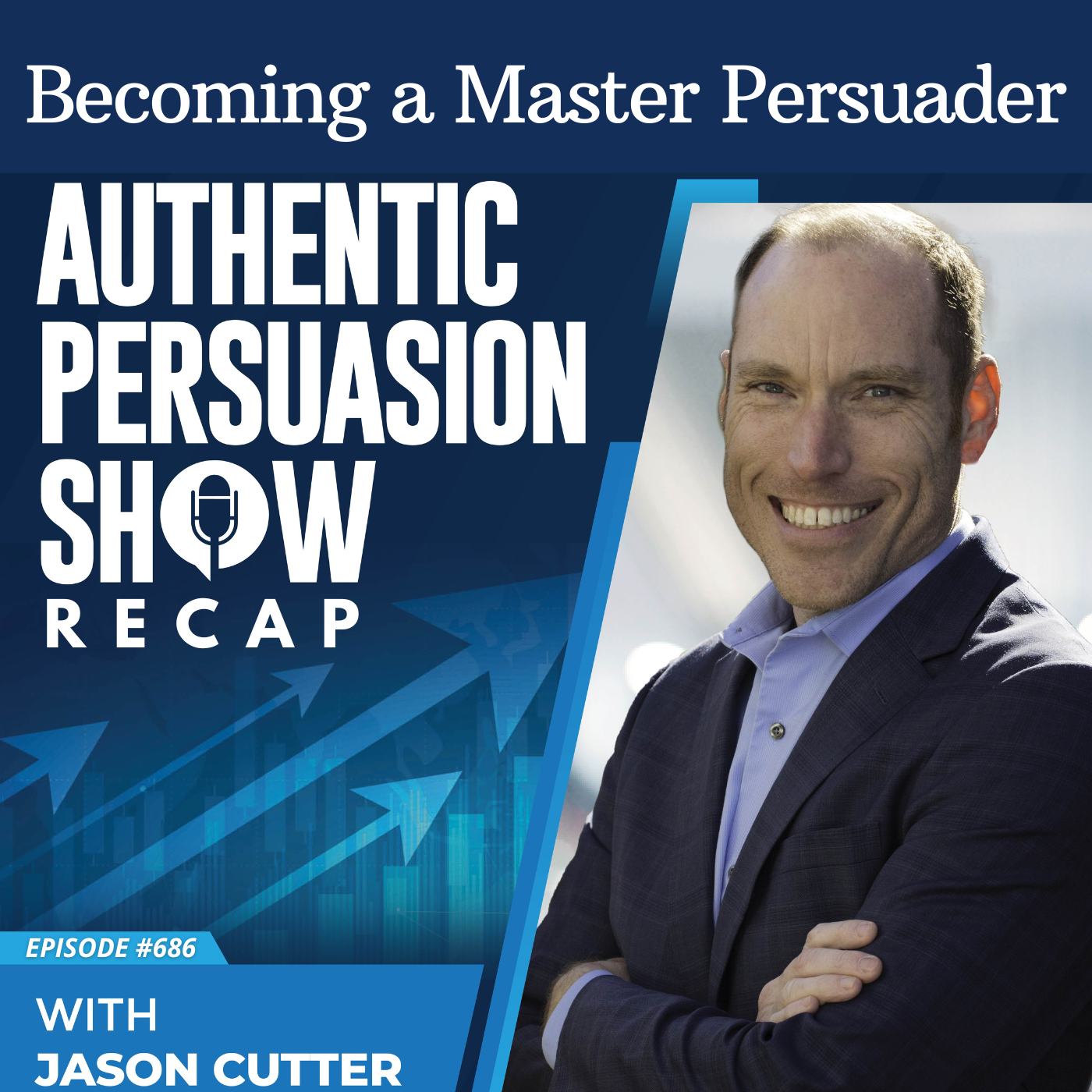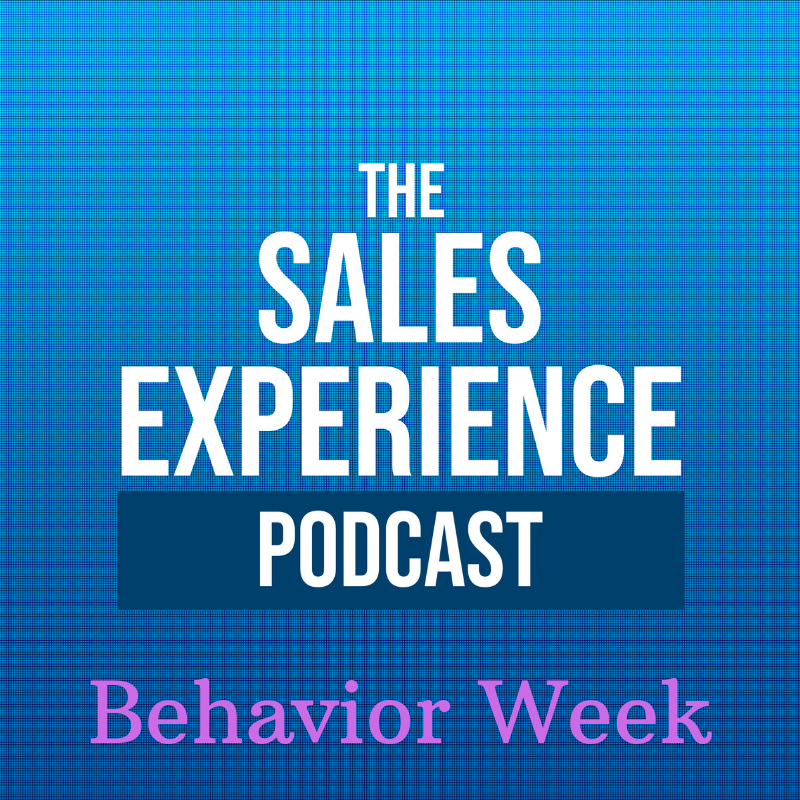Show Notes
Fundamentals Week – Part 5. The Rapport transitions into Empathy. Empathy then makes way for the Trust building step. But how do you build trust in the right way?
You might have the benefit of a trusted brand. But my guess is that you don’t. There are some fundamental ways to create trust in the minds of your prospects towards you. And it might not be what think.
Episode 15 – Transcript
Welcome to Episode 15 of The Sales Experience Podcast. My name is Jason Cutter this week is all about the sales fundamentals. There are probably thousands of sales systems being touted as the best one ever.
Go on Amazon and search sales and it will seem like everyone has written a book on sales. The practice of sales has been around since the beginning of time.
The very first sale was between Grog when he was 22 years old and had hunted a wooly mammoth and Larry in the next cave over wanted the tusk and they made a trade for some berries. Since then there has been buyers and sellers. And there have been some fundamental principles of most sales.
Now keep in mind, these fundamentals are in place in a sales transaction, not necessarily if its just a matter of order taking or fulfillment. You don’t need to feel empathy from your server at Red Robin in order to feel like you had a good experience. You just need endless amounts of yummy fries!
So first we had Rapport – got to have some level of friendly relationship. Then came empathy relative to your product or service. If you work at a funeral parlor you will want a different level of empathy than you would if you sell Toyotas. Your empathetic bedside manor is important to get right. Then after those two phases comes Trust.
You might be saying – ‘don’t I want to build Trust first?’ No. No you don’t. Your brain might think that. And that is the classic tactic for most sales people. ‘Look at me…trust me…now buy from me.’ I will cover in the next episode when building trust goes wrong.
How do you build trust? Partially by going back to the principal that people don’t care how much you know until they know how much you care. That is why empathy comes before the trust step. They have to know how much you care. Then you can get into your pitch.
Trust comes when the prospect understands two things about you. First that you know what you are talking about. Second that you have their best interests in mind. That doesn’t mean you aren’t going to make a sale. Just means that it will hopefully be what they want or need.
What if you are new and don’t know what you are talking about? Practice more. Run through your monologue until it just flows out of your mouth. The monologue is your explanation of what your company, product or service does and why its awesome. Its your ‘sales pitch’.
And it’s not a bad or negative thing – monologue sales pitches are important and necessary for most sales to occur. However they have to come in the right order. And then they need to be used to establish trust that you are one of the good salespeople and your company is there to help get them into a better place in their life.
But you can also build a trusting sales relationship with someone without ever talking about yourself or your product. You can build trust by just asking the right questions and giving the right guidance. Trusted advisors ask probing questions that get to the heart of the prospect with the goal of uncovering the deepest level of desires or pain that the prospect will allow to be exposed. Trust comes when you can go as deep as needed with someone in order to know what problem you can actually solve.
If you have a trusted brand – of course that helps and you want to leverage that. But if the prospect doesn’t know your brand or company, then they are first deciding if they want to buy from you. They have to trust you first, then trust your company second.
Another way to build trust is through third party testimonial stories. Most people want to know two things when making a purchasing decision. First, that they aren’t the only one with their issue or in their situation. Everyone wants to feel special but no one wants to be alone.
Make sure you have examples of other prospects in situations like the one you are speaking with. Second, the prospect wants to know that they don’t die when they buy from you. I know that sounds silly and extreme, but they want to know that other people have bought from you and lived. Or even important is that other people bought and it was the right decision. Share stories of other customer’s successes with your product or service and how it turned out for them. That will help go a long way towards the trust factor.
That’s it for trust – pretty straight forward. Start off with doing the empathy step which should then lead into probing questions and of course actively listening to the answers given. Then tailor your sales pitch monologue to fit their situation and not just a terrible one size fits all vomit of justifications of why you are awesome. No one cares how amazing you or your company think you are.
They only care about what you do to help solve their current, pressing issue. Then share with them any stories you have of other prospects in situations like their who then bought from you or your company and were set on a better path in life because of it.
If you are enjoying The Sales Experience Podcast, subscribe, rate, comment, and most of all share it these episodes with anyone you know who is in sales, thinking about getting into sales, or manages or owns a company that relies on sales to generate revenue. Which is every company in the world.
Until next time, always remember that everything in life is sales and people will remember the experience you gave them.
![[E15] Fundamentals Week: The Trust Factor](https://episodes.castos.com/salesexperiencepodcast/images/TSEP-Cover-Fundamentals-Week-2.png)


